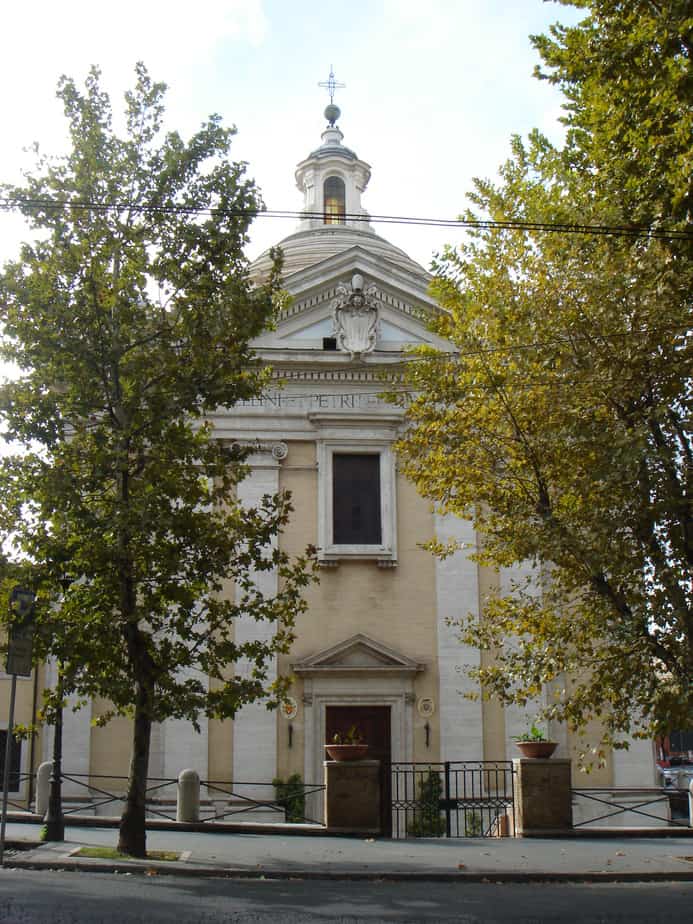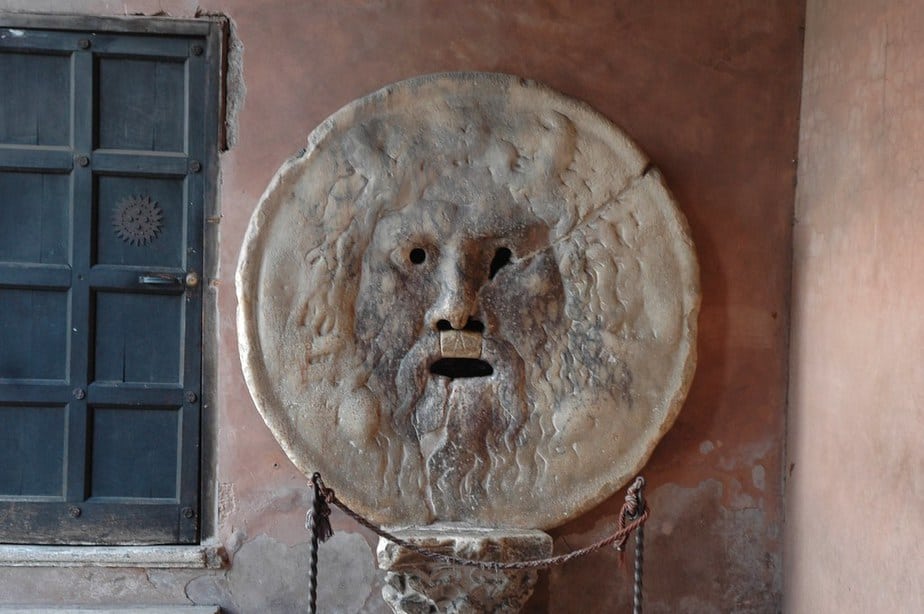Meet Rome’s Most Famous Poet: Giuseppe Gioachino Belli
When I got off an airplane at Milan Malpensa Airport for my very first visit to Italy, I was determined to learn Italian. My first sentences in the language were funny. As a Latina, I was using my mother tongue Portuguese as well as everything I know in Spanish and French to create sentences that I could just hope to make sense in Italian. Many embarrassing attempts later, I was actually feeling pretty confident about my progress. I thought I was rocking it.
But then I left northern Italy and headed to Rome, where I thought Italian would be as by-the-book as possible. I had never been more wrong. From the minute I arrived, I noticed that many of the sentences I was so sure about sounded much different when coming out of the mouths of native Romans. Needless to say, my confidence went down the drain and I started questioning everything I thought I already knew in Italian.
How relieved I felt when I found out these sentences sounded so different to me because they were actually not in Italian! They were in Romanesco, a medieval dialect derivative of Italian and Tuscan, spoken until today in Rome’s metropolitan area. Whew!
The dialect is so rich and so characteristic to the Roman culture that it deserves an exclusive article about it. For now, let’s just focus on one particular discovery I made once I knew Romanesco existed on the map: Giuseppe Gioachino Belli, Rome’s most famous poet!
I had never heard about Belli before getting to the Eternal City, I have to confess. However, once I acknowledged the existence of the dialect, the Roman poet just came along with it in a gift wrap. The more research I made about Romanesco, the more his name appeared.
Belli turned Romanesco into pure art through his sonnets; many of the finest literature pieces using the dialect are his. More than that, he documented the life of 19th-century papal Rome in such a unique way that reading his poems made me see the city with totally different eyes.
He was my Pandora box, but instead of releasing evil, he unlocked aspects of the capital city that I didn’t know and couldn’t even dream about. A Romanesco-History box, I may say, to which I only gained access by noticing “Italian” was not quite the same in Rome.

Monument (1913) to Giuseppe Gioachino Belli (Rome 1791-Rome 1863) by Michele Tripisciano in Rome. Photo taken by Carlo Raso, uploaded on Flickr. Public Domain Mark 1.0.
The tragic youth of Giuseppe Gioachino Belli
Giuseppe Francesco Antonio Maria Gioachino Raimondo Belli, known as “just” Giuseppe Gioachino Belli, was born on September 7th 1791 in Rome to a Christian family of lower bourgeoisie status.
When Rome was occupied by France in 1798, Belli’s father, the papal accountant Gaudenzio Belli, had all his possessions confiscated, while one of his cousins, Gennaro Valentini, who was a general to the Bourbon army, was shot dead by French authorities at Piazza Montecitorio after being accused of treason.
Given the situation, the family sought refuge in Naples, where they faced a period of hardship. They returned to the Eternal City in 1800, when the Papal States were briefly restored. In that same year, Belli’s father was appointed to a well-paid role at the coastal city of Civitavecchia, 60 kilometers away from Rome, to where the whole family relocated.
They didn’t stay there for long, though. In 1802, Belli’s father died of either cholera or typhus, and his mother, the Neapolitan Luigia Mazio, moved back to Rome with him and his siblings, Carlo and Flaminia. Without Gaudenzio’s income, the family lived in cheap lodgings at Via del Corso, at the city’s historical center.
In 1806, his mother remarried. She died the next year, leaving her three children to the care of their paternal uncles. Tragedy struck Belli’s life once more in 1809, when his brother died at the age of 18.
Belli’s adulthood and literature
Following the rapid series of unfortunate events, Flaminia became a nun while Belli worked at several precarious jobs, which forced him to abandon his studies at the prestigious Collegio Romano.
In 1812, at the age of 21, he had the opportunity to work at the Palazzo Poli as the secretary to Prince Stanislaus Poniatowsky, nephew of the King of Poland. In that same year, he also joined l’Accademia degli Elleni, a pro-French institute founded in 1805, where he began to introduce himself to Rome’s cultural scene.
In 1813, after a split in the pro-French Accademia, Belli co-founded l’Accademia Tiberina, whose objective was to promote rhetorical studies in the city. He was also fired from the Palazzo Poli after unclear disagreements with the prince’s wife.
Belli’s life finally made a 180° turn in 1816, at the age of 25, when he married the wealthy widow Maria Conti, with whom he had only one child, Ciro, born in 1824.
His new social status as a rich man enabled him to focus on his literature skills, which were vividly praised and encouraged by his friend and fellow poet Francesco Spada. After some trips to northern and central Italy, his poetry was greatly influenced by the revolutionary environment and the Enlightenment movement which were almost inexistent in Rome at the time of his travels.
In Milan, he was inspired by the dialect poetry and satire of Carlo Porta, the most famous writer in Milanese dialect. From Porta, he acquired the model he needed to start writing in his own local dialect, Romanesco.
Following his wife’s death in 1837, Belli found himself once again in a critic economic situation, which negatively affected his mental health and literature production – the former being officially halted in 1849, when he wrote his last sonnet in dialect.
Not being able to afford a life dedicated to poetry anymore, he spent his last years working as a censor for the Roman Catholic Church. Despite having spent his life writing satiric poems about the Church, he was most likely granted his final position as censor due to his support to the rights of the Pope during the democratic rebellion of the Roman Republic.
Describing himself as a “dead poet”, Belli asked his friend Monsignor Vincenzo Tizzani to burn most of his Romanesco pieces just before his death. He died in Rome in 1863, at the age of 72, from a stroke. Fortunately for us, Tizzani did not follow his instructions and gave his poems back to his son, Ciro Belli.
In 1866, Ciro published the first selection of Romanesco sonnets written by his father, which granted Belli enormous posthumous prestige.
Belli’s sophisticated sonnets in Romanesco dialect

An advertisement in the Rome metro featuring a slogan in Romanesco. Photo by Gaucho, uploaded at it.wikipedia. / CC BY-SA (http://creativecommons.org/licenses/by-sa/3.0/)
Giuseppe Gioachino Belli mastered Standard Italian, a skill that not everyone possessed at his time. Recently published letters written by him in Italian are impressive examples of his intelligence and high command of the language.
However, little attention is given to the poems he wrote in Italian. It was his dialect poetry that, once published, made his fame. His humorous way of describing the day-to-day life in the early 19th-century papal Rome, his sharp satires targeting the cleric, his soft eroticism, those were all elements that contributed to make his poems popular. His craftiness and superior ability to play with the rhythm and metrics of the Petrarchan sonnet also contributed to put his name among those of the greatest dialect poets that ever existed.
One of his most famous sonnets is “The Sovrans of the Old World”, written in 1831 and often listed as number 361 or 362 in the collection Sonetti romaneschi. In this sonnet, Belli sheds light on the power functions of the Roman society at his time. A largely diffused translation of this poem (which I will share bellow) was made by Peter Nicholas Dale, who translated the poem from Romanesco to “Strine”, an English dialect spoken in his Native Australia. His translation of this sonnet turns out to be more popular than others in Standard English. Try it out:
Original: Li soprani der monno vecchio
C’era una vorta un Re cche ddar palazzo
mannò ffora a li popoli st’editto:
“Io sò io, e vvoi nun zete un cazzo,
sori vassalli bbugiaroni, e zzitto.
Io fo ddritto lo storto e storto er ddritto:
pòzzo vénneve a ttutti a un tant’er mazzo:
Io, si vve fo impiccà nun ve strapazzo,
ché la vita e la robba Io ve l’affitto.
Chi abbita a sto monno senza er titolo
o dde Papa, o dde Re, o dd’Imperatore,
quello nun pò avé mmai vosce in capitolo!”.
Co st’editto annò er Boja per ccuriero,
interroganno tutti in zur tenore;
e arisposeno tutti: “È vvero, è vvero!”
“Strine” translation: The Sovrans of the Old World
Wunce upon a time from his palatial hall a king
Pud an edict out f’ris peoples ut sed: “Hey yu chaps!
I’m me, got it?, an yu lot ain’ wirth a fucken thing,
Ya bunch a slaven arseholes: so shutcha traps.
I get the strait ta bend over, an I straiten up the bent,
I can hock the lottayez f’ra bob or two adda throw:
An if get yez hanged id ain’ crueldy: ’cos, ya know,
Life an properdy’s jus stuff I pud up fa rent.
Anywun on this planet, if he ain’t a King,
Or if he lacks a title like ‘Emp’ra’ or ‘Pope’,
That fellah can’ ever have a say in anything.”
His hangman wen’ out with the edict ta size up folks’ views
N’ grilled ev’rywun as t’w its tenor, fa the inside dope,
N’ t’wa man they all ansered back: “It’s true. Yep, it’s true.”
Pretty cool, right? But now, let me give you a taste of his poetry in Standard English.
Something I particularly like about Balli’s poetry is that it also describes several historic sites and legends from the city, such as the Mouth of Truth, an enigmatic 1300-kilogram marble mask believed to bite off the hand of those who tell a lie while with their hand inside of its mouth. You can find the original and translated versions of the sonnet “The mouth of truth” bellow:
Original: La bocca de-la-verita
In d’una chiesa sopra a ‘na piazzetta
Un po’ ppiù ssù de Piazza Montanara
Pe la strada che pporta a la Salara,
C’è in nell’entrà una cosa benedetta.
Pe ttutta Roma quant’è larga e stretta
Nun poterai trovà cosa ppiù rara.
È una faccia de pietra che tt’impara
Chi ha detta la bucìa, chi nu l’ha detta.
S’io mo a sta faccia, c’ha la bocca uperta,
Je ce metto una mano, e nu la striggne
La verità da me ttiella pe certa.
Ma ssi fficca la mano uno in bucìa,
Èssi sicuro che a tirà né a spiggne
Quella mano che lì nun viè ppiù via.
English translation: The mouth of truth
In a church, in a small square
Shortly after Montanara Square,
Along the road leading to the salt-works,
As soon as you enter there’s something holy.
In all Rome far and wide
You could not find something as rare as that.
It’s a face of stone, which tells
Who is a liar and who is not.
If in the mouth of this statue, which is open,
I insert my hand and it does not clasp it,
Consider my truth as most reliable.
But if a liar inserts his hand
Be sure that, push or pull,
That hand won’t come out.
“DSC_4328” by kyriazis is licensed under CC BY-NC-ND 2.0
As for Belli’s work criticizing the cleric, my absolute favorite is the one where he satirizes the traditions of the nuns of San Pietro e Marcellino’s church, named “The vow”. What I like about this sonnet is not just how acid it is, but mainly what it has taught me. Thanks to Belli, I learned something very specific about a group of nuns that I didn’t know about, who belonged to a church that I didn’t know that existed. Right to the point quenching my thirst for history!
Original: Er voto
Senti st’antra. A Ssan Pietro e Marcellino
Ce stanno certe moniche befane,
C’aveveno pe voto er contentino
De maggnà ttutto-quanto co le mane.
Vedi si una forchetta e un cucchiarino,
Si un cortelluccio pe ttajacce er pane,
Abbi da offenne Iddio! N’antro tantino
Leccaveno cor muso com’er cane!
Pio Ottavo però, bona-momoria,
Che vedde una matina quer porcaro,
Je disse: “Madre, e che vò dì sta storia?
Sete state avvezzate ar monnezzaro?!
Che voto! un cazzo. A dio pò dasse groria
Puro co la forchetta e cor cucchiaro”.
English translation: The vow
Listen to this one. At San Pietro e Marcellino’s church
There are such nasty nuns,
Who, as a vow, had the bad habit
Of eating food using their bare hands.
Just imagine if a fork and a spoon,
A small knife for cutting bread,
Could be an offence to God! They almost
Licked the dish like dogs!
But the late Pius the Eighth,
Who one day saw that filth,
Told them: “Mother, what does all this mean?
Have you been brought up in a dump?
Damn that vow! God can be praised
Although using a fork and a spoon”.

San Pietro e Marcellino’s church. Photo by Lalupa, uploaded at WikiCommons / CC BY-SA (http://creativecommons.org/licenses/by-sa/3.0/)
I hope this article has inspired you to read more of Giuseppe Gioachino Belli’s sonnets. Before I leave, I would like to share one more sonnet, though – just one more, I promise! I wouldn’t be making a fair introduction between you and him if I hadn’t shared at least one poem where he exposes his principals, would I?
Original: L’aducazzione
Fijo, nun ribbartà mai tata tua:
Abbada a tte, nun te fà mette sotto.
Si quarchiduno te viè a dà un cazzotto,
Lì callo callo tu dajene dua.
Si ppoi quarcantro porcaccio da ua
Te ce facessi un po’ de predicotto
Dije: “De ste raggione io me ne fotto:
Iggnuno penzi a li fattacci sua”.
Quanno giuchi un bucale a mora, o a boccia,
Bevi fijo; e a sta gente buggiarona
Nun gnene fà restà manco una goccia.
D’esse cristiano è ppuro cosa bona:
Pe questo hai da portà ssempre in zaccoccia
Er cortello arrotato e la corona.
English translation: Education
My son, never do wrong to your daddy,
Take care, don’t let yourself be subdued.
If someone ever hits you,
Straight away you hit him twice.
And if any other bastard
Tries to lecture you,
Tell him: “I don’t care a damn about these reasons:
Everyone mind his own business”.
When you bet a jug of wine playing morra, or bowls,
Drink, my son; and don’t let these fools
Have a single drop.
To be a Christian is another good thing:
For this reason always keep in your pocket
A sharpened knife and a rosary.
Planning a trip to Paris ? Get ready !
These are Amazon’s best-selling travel products that you may need for coming to Paris.
Bookstore
- The best travel book : Rick Steves – Paris 2023 – Learn more here
- Fodor’s Paris 2024 – Learn more here
Travel Gear
- Venture Pal Lightweight Backpack – Learn more here
- Samsonite Winfield 2 28″ Luggage – Learn more here
- Swig Savvy’s Stainless Steel Insulated Water Bottle – Learn more here
Check Amazon’s best-seller list for the most popular travel accessories. We sometimes read this list just to find out what new travel products people are buying.











